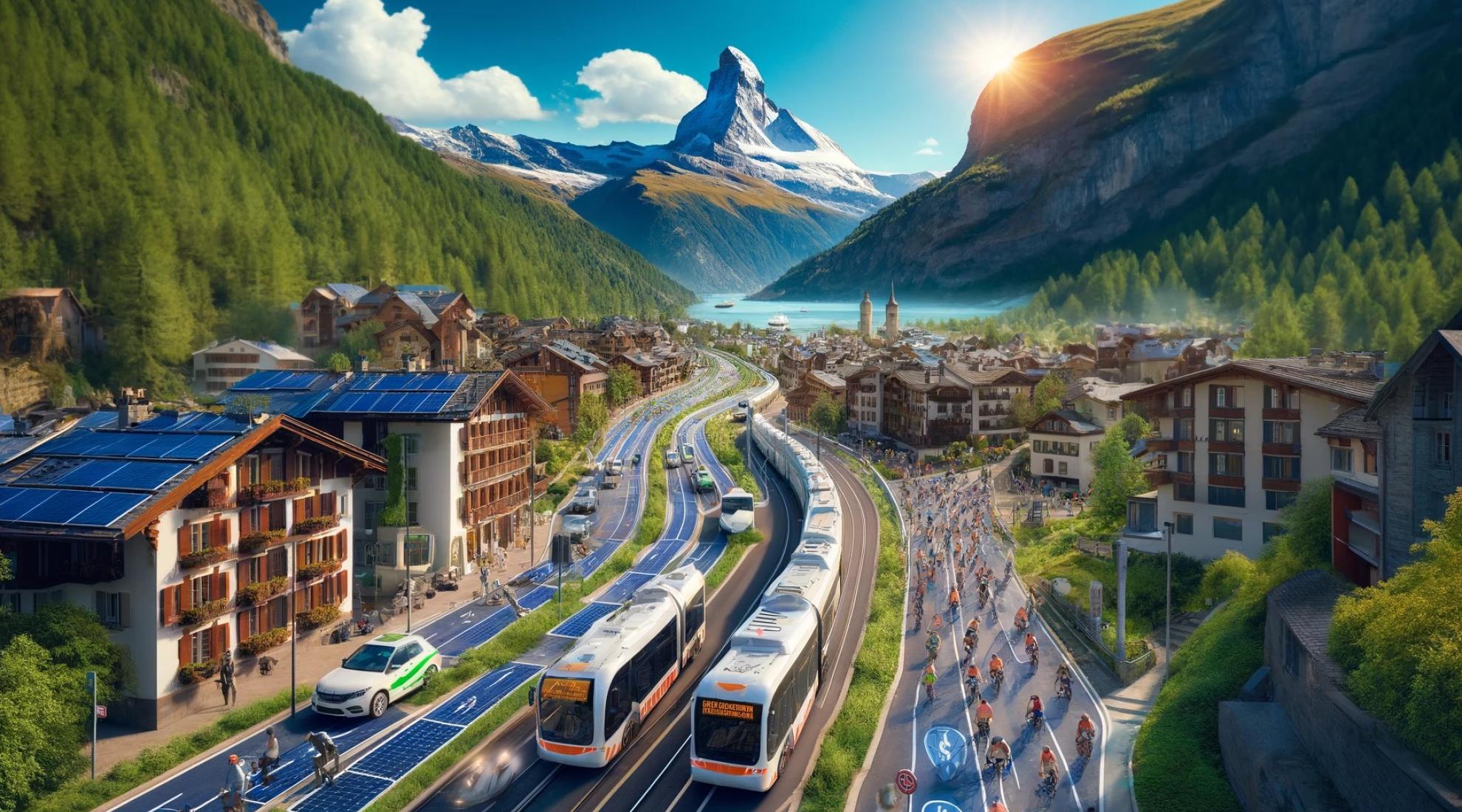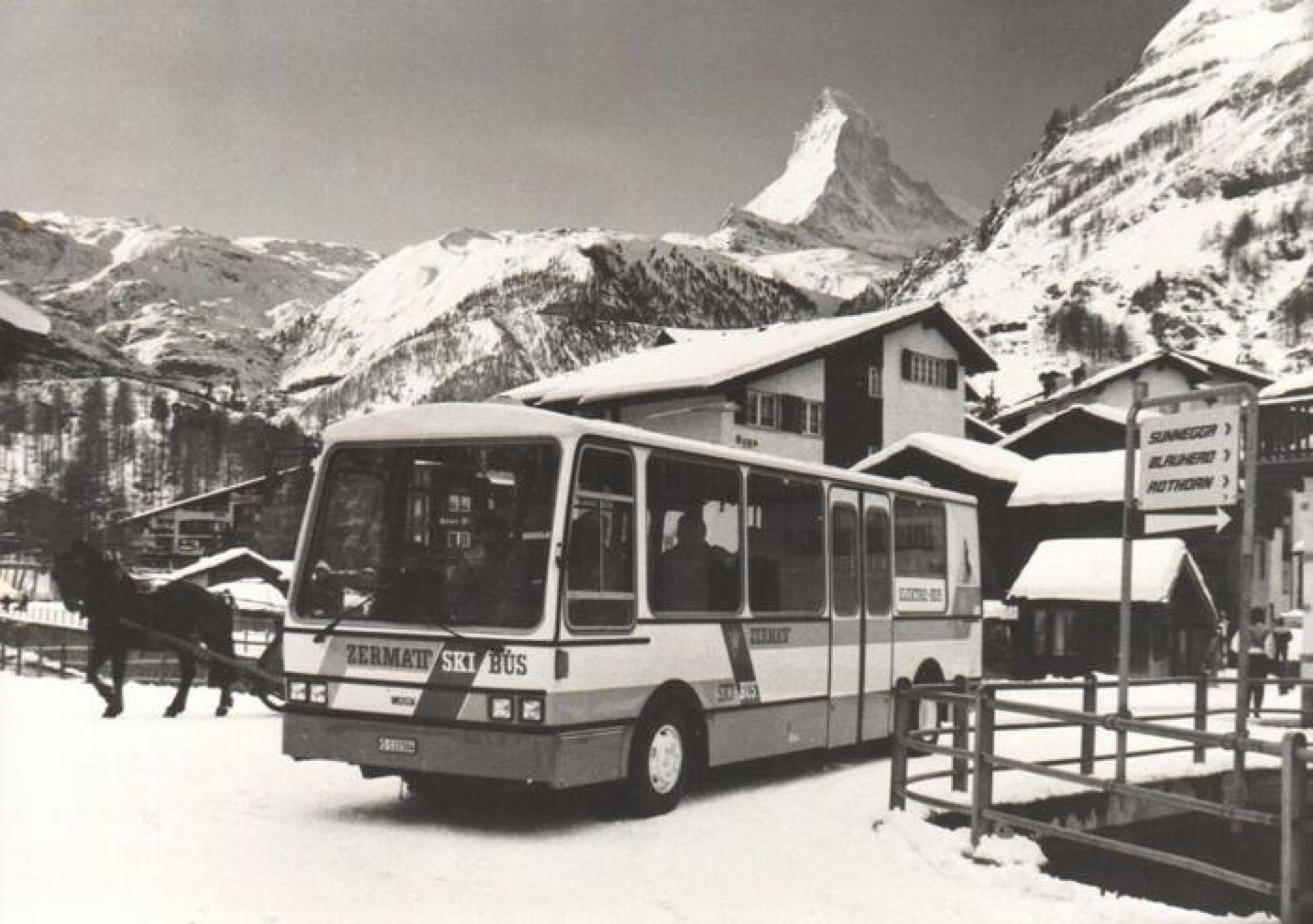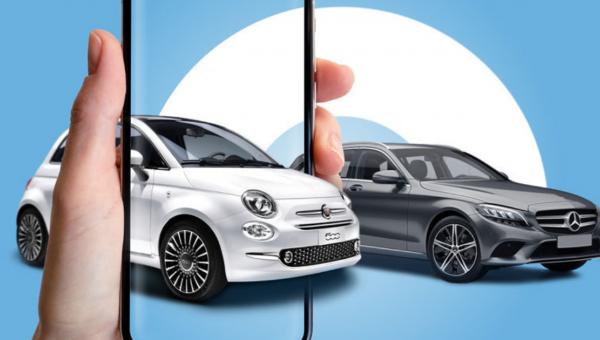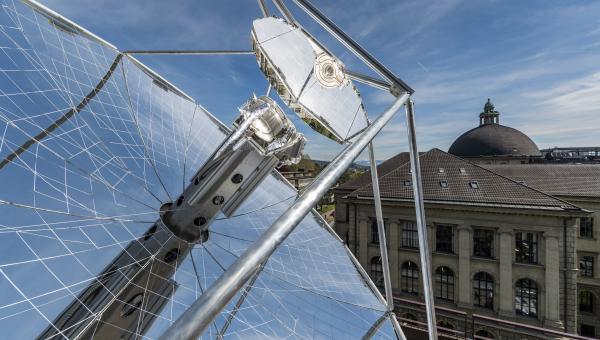Switzerland's pioneering journey towards sustainable mobility

From the pioneering spirit of electric mobility in Zermatt to successful start-ups that are turning the industry upside down: Switzerland's path to sustainable mobility.
The famous Swiss village of Zermatt at the foot of the Matterhorn is a pioneer in the field of electric mobility: the streets of Zermatt have been closed to private car traffic since 1931, and the first electric car, resembling a toy box, drove through the streets of Zermatt as early as 1947. And it was more than 30 years ago, in January 1988, that Zermatt's first 50-passenger low-floor electric buses were introduced to transport locals and guests to all the valley stations of the Zermatt mountain railways. The electricity for the batteries comes 100% from hydroelectric power, as Zermatt has an abundance of water thanks to its many glaciers and lakes.

The first low-floor electric bus operating in Zermatt in 1988.
A pioneer in railway electrification
Switzerland is an international leader when it comes to sustainable mobility, not least thanks to the early electrification of the Swiss railway network and the focus on generating energy from hydropower. Today, it is taken for granted that the railways run on electricity and that public transport companies strive to operate as climate neutrally as possible. Today, 90% of the power used to run the Swiss Federal Railways trains comes from hydropower.
Innovations across the board: from rail to solar
From climate-neutral ships and solar-powered cable cars to electric buses and car-free resorts, Switzerland offers a diverse range of environmentally friendly transport options, leveraging its expertise in various sectors. For example, a unique energy system for the Biel-Magglingen funicular railway collects solar energy from the roof of the top terminal and stores energy recovered from regenerative braking, providing more than 30 per cent of its total energy needs. In a remarkable achievement, Swiss train manufacturer Stadler recently set a world record with its hydrogen-powered passenger train, which covered an impressive 2,803 kilometres without the need for refuelling or recharging.
Start-ups committed to net zero
As transport has the largest impact in Switzerland, accounting for 31% of all greenhouse gas emissions, technological innovation in this area is important to ensure that Switzerland achieves net zero greenhouse gas emissions by 2050. While Solar Impulse - an airplane that flew around the world using no fossil fuels, only solar energy and batteries - had a huge impact beyond Switzerland's borders about ten years ago, a large number of start-ups are working in the background to make transport more sustainable. Swiss.tech showcases a selection of the most innovative and promising start-ups in the field of sustainable mobility:
Zero-emission hydrofoil boats capable of transporting passengers in comfort at speeds in excess of 70km/h while using 95% less energy than existing diesel ferries. A prototype is already operating on Lake Geneva. First commercial boat will be delivered in 2024.
> Read more in our swiss.tech story
Is building a fleet of hydrogen-powered boats that are silent and ecologically friendly by only emitting water vapour. Thanks to their hydrofoils, the ships fly above the water offering unparalleled comfort to the passengers aboard the shuttle whilst consuming 85% less energy.
A spin-off from Solar Impulse, this start-up is developing cutting-edge fully electric propulsion systems for planes, making air transport quiet, clean and affordable.
> Read more in our swiss.tech story
The Swiss start-up Daphne Technology has developed a filter to drastically reduce the harmful emissions of large cargo and cruise ships and convert the emitted gases into fertiliser.
> Read more in our swiss.tech story
A unique aviation-technology venture on a manned mission aimed at flying a solar-powered airplane for the first time to the stratosphere.
EPFL spin-off Qaptis has developed a mobile carbon capture system that can cut freight trucks' carbon emissions by up to 90%.




